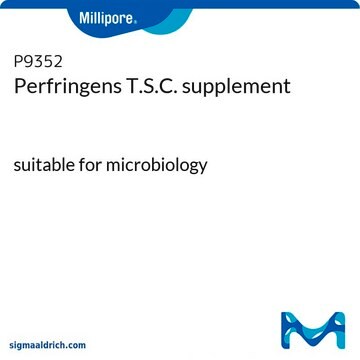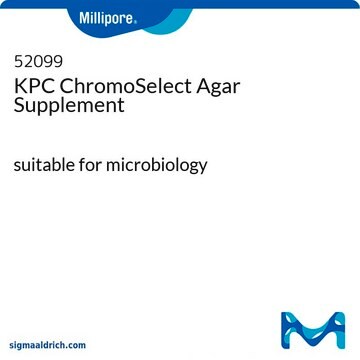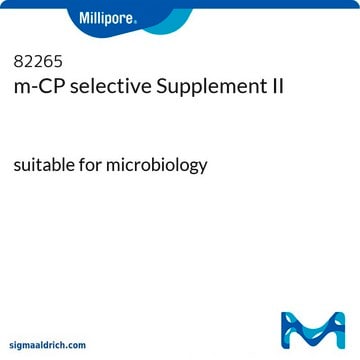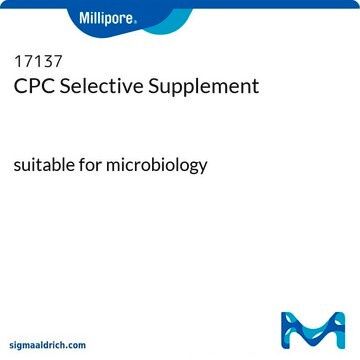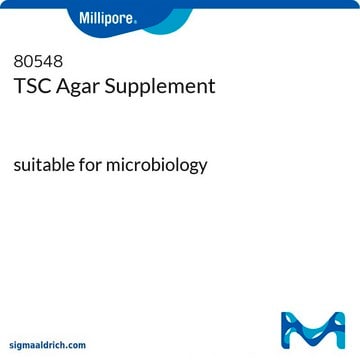12398
CP ChromoSelect Agar
NutriSelect® Basic, suitable for microbiology
Synonym(s):
CPC Agar, Clostridium perfringens ChromoSelect Agar, Clostridium perfringens Chromogen Agar
About This Item
Recommended Products
sterility
non-sterile
Quality Level
form
powder
shelf life
limited shelf life, expiry date on the label
composition
agar, 15.0 g/L
ammonium iron(III) citrate, 0.2 g/L
chromogenic mixture, 1.73 g/L
L-cysteine hydrochloride, 1.0 g/L
magnesiumsulfate heptahydrate, 0.1 g/L
soy peptone, 5.0 g/L
sucrose, 3.0 g/L
tris buffer, 1.8 g/L
tryptose (vegetable), 20.0 g/L
yeast extract, 15.0 g/L
manufacturer/tradename
NutriSelect® Basic
final pH
7.4±0.2 (25 °C)
application(s)
agriculture
bioburden testing
environmental
food and beverages
water monitoring
microbiology
suitability
selective and differential for Clostridium spp.
Application
Preparation Note
Footnote
The designations basic, plus, or prime are added to indicate the quality control level, from basic quality control to standard QC plus to prime for full regulatory compliance.
Legal Information
Storage Class Code
11 - Combustible Solids
WGK
WGK 2
Flash Point(F)
Not applicable
Flash Point(C)
Not applicable
Choose from one of the most recent versions:
Already Own This Product?
Find documentation for the products that you have recently purchased in the Document Library.
Customers Also Viewed
Articles
Clostridium perfringens can cause contamination in undercooked or improperly sterilized canned foods and water. Learn to detect, identify, and differentiate this pathogen.
Clostridium perfringens can cause contamination in undercooked or improperly sterilized canned foods and water. Learn to detect, identify, and differentiate this pathogen.
Clostridium perfringens can cause contamination in undercooked or improperly sterilized canned foods and water. Learn to detect, identify, and differentiate this pathogen.
Clostridium perfringens can cause contamination in undercooked or improperly sterilized canned foods and water. Learn to detect, identify, and differentiate this pathogen.
Our team of scientists has experience in all areas of research including Life Science, Material Science, Chemical Synthesis, Chromatography, Analytical and many others.
Contact Technical Service






